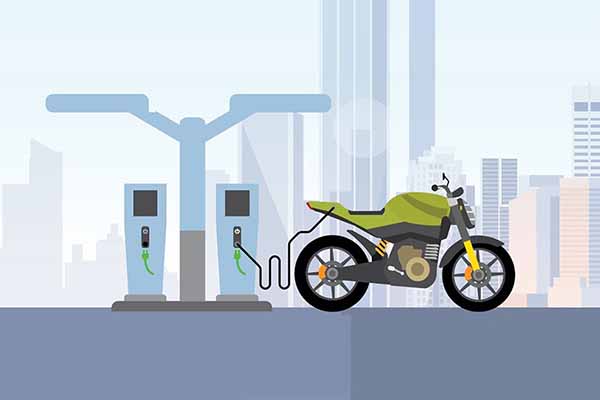The Union Budget 2022 emphasised the importance of e-mobility, boosting EV adoption across the country in order to focus on sustainable and clean mobility options. Sustainable development models, with a greater emphasis on renewable energy sources, a clean environment, and initiative in coping with climate change, are one of the key steps to making the Indian automotive industry compete globally, ensuring greater value addition in the country, spurring manufacturing, and creating significant additional employment. The major drivers of the fundamental revolution of sustainable and clean mobility are regulation, customer behaviour and technology.
Our government has implemented several laws and measures to stimulate the manufacture and the use of EVs. Which have yielded positive outcomes and enhanced EV penetration in the Indian market. Various criteria for the country’s fast adoption of EVs necessitate proper infrastructure, legislation, and policies. These characteristics should be strengthened further by establishing and implementing a comprehensive framework for EVs in the country. Various laws and regulations within this framework should encourage quicker adoption of EVs in the country by providing an inexpensive, dependable, safe, and accessible infrastructure and environment.
The abrupt move to technology and electrification in the car industry is extremely visible, but growth in India has been considerably slower than in the rest of the globe. To address this issue, the federal government issued the FAME (Faster Adoption and Manufacturing of Electric Vehicles) policy in 2015, followed by the FAME II policy in 2019. To capitalise on this golden opportunity, several state governments are hurrying to declare their respective state EV policies, which are aimed to stimulate the adoption and manufacture of EVs. Many Indian governments, including Maharashtra, Delhi, and Gujarat, are offering significant incentives to EV customers, lowering the upfront cost of electric vehicles to compete with their ICE (internal combustion engine) equivalents.
These subsidies supplied by various state governments are in addition to those provided by the Centre under the FAME II plan. Many state governments are imposing extra road fees on ICE cars, a green tax on the re-registration of old vehicles, different penalties and taxes on gasoline and diesel, and an ICE congestion fee. Whereas several southern states are focusing on electric vehicle development. Many governments, including Tamil Nadu, Andhra Pradesh, Telangana, and Karnataka, are attempting to lure millions of crores of investment from EV manufacturing businesses over the next few years by giving tax breaks, capital investment incentives, and lower power tariffs.
The battle among states for EV policies is a favourable sign for the sector as India strives to reduce its reliance on fossil fuels. This EV adoption will assist to cut greenhouse gas emissions by around 35% from 2005 levels in the next nine years in order to satisfy global climate targets. EV sales increased last year despite the economic slump caused by the Covid-19 epidemic.
India clocked 1.04 lakh EV sales in the current fiscal whereas, in the last 3.5 years, the total registrations were 5.17 lakh. From the year 2001 and 2017, Indian vehicle ownership has seen a growth of over three-fold. Today more than 80% of vehicles in India are two-wheelers. This segment will drive the change. Till the year 2024, the Central government has extended its Faster Adoption and Manufacturing of Hybrid and Electric Vehicles scheme with a total budgetary outlay of Rs 10,000 crore. Our government is supporting this sector by promoting manufacturing, R&D, subsidy, and scrapping. They are also investing in battery manufacturing and developing charging infrastructure.
The government created a programme called National Electric Mobility Mission Plan 2020 to accelerate the use and manufacturing of (hybrid and) electric vehicles in India (FAME India). There is an urgent need to transition to clean transportation since automotive pollution is wreaking havoc on the ecosystem. The NEMMP seeks to spend around INR 14000 crores in R&D initiatives and fledgling technologies, to expedite the adoption of electric cars, and to construct critical infrastructure through public-private partnerships. The Ministry of Heavy Industry, under the Government of India, established the potential target and objectives of the NEMMP after conducting a thorough analysis of the potential interventions, taking into account focus group discussions, expert opinions, existing literature, international studies, and primary research conducted by the consulting firm Booz & Company, now Strategy&, which became the knowledge partner to various Indian government authorities.
Electric cars have been gaining popularity for many years due to lower maintenance costs, lower fuel prices, and environmental friendliness. People are already transitioning to electric vehicles, but the infrastructure is still needed. Various national and state government EV policies must control and promote research development, charging infrastructure, and appropriate skill development techniques. We require an EV policy that will contribute to the creation of a favourable environment for the transition from internal combustion engines to EVs. We require effective policies that focus on EV research and development.
Several states have implemented electric car policies to complement national electric mobility plans and push futuristic sustainable transportation. Approximately half of the Indian states have their own EV policies. EV policies include monetary incentives for EV purchases, exemption from road tax, car registration costs, and reduced EV loan interest rates. It also includes attempts to encourage public transportation and last-mile delivery operators to acquire more electric cars. Last but not least, EVs and their associated battery manufacturing infrastructures, charging infrastructure, and scrapping facilities are being built.
The provision of fiscal and non-fiscal incentives can be used to boost the long-term sustainability of EVs. Regulations must be drafted to allow gas stations to freely put up charging stations. Another key challenge for EV producers is the safe disposal of batteries. Though the government is in the process of developing standards for battery recycling procedures and incentives for businesses that set up recycling facilities, the process has to be expedited.
About the author:
Dr. Irfan Khan is Founder & CEO of eBikeGo (https://ebikego.com ) India’s largest smart electric two-wheeler mobility platform.



















